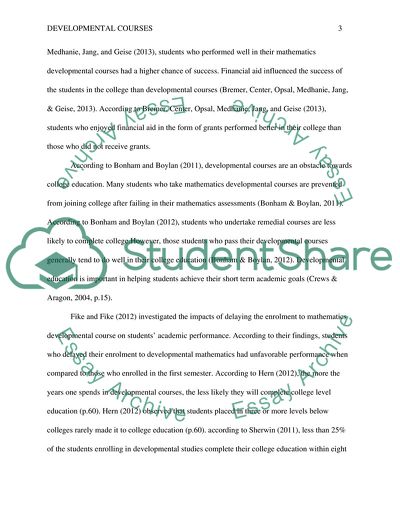Cite this document
(Developmental Courses and Student Success Research Paper Example | Topics and Well Written Essays - 2750 words, n.d.)
Developmental Courses and Student Success Research Paper Example | Topics and Well Written Essays - 2750 words. https://studentshare.org/statistics/1860138-mixed-methods-continuation-of-1st-paper
Developmental Courses and Student Success Research Paper Example | Topics and Well Written Essays - 2750 words. https://studentshare.org/statistics/1860138-mixed-methods-continuation-of-1st-paper
(Developmental Courses and Student Success Research Paper Example | Topics and Well Written Essays - 2750 Words)
Developmental Courses and Student Success Research Paper Example | Topics and Well Written Essays - 2750 Words. https://studentshare.org/statistics/1860138-mixed-methods-continuation-of-1st-paper.
Developmental Courses and Student Success Research Paper Example | Topics and Well Written Essays - 2750 Words. https://studentshare.org/statistics/1860138-mixed-methods-continuation-of-1st-paper.
“Developmental Courses and Student Success Research Paper Example | Topics and Well Written Essays - 2750 Words”. https://studentshare.org/statistics/1860138-mixed-methods-continuation-of-1st-paper.


